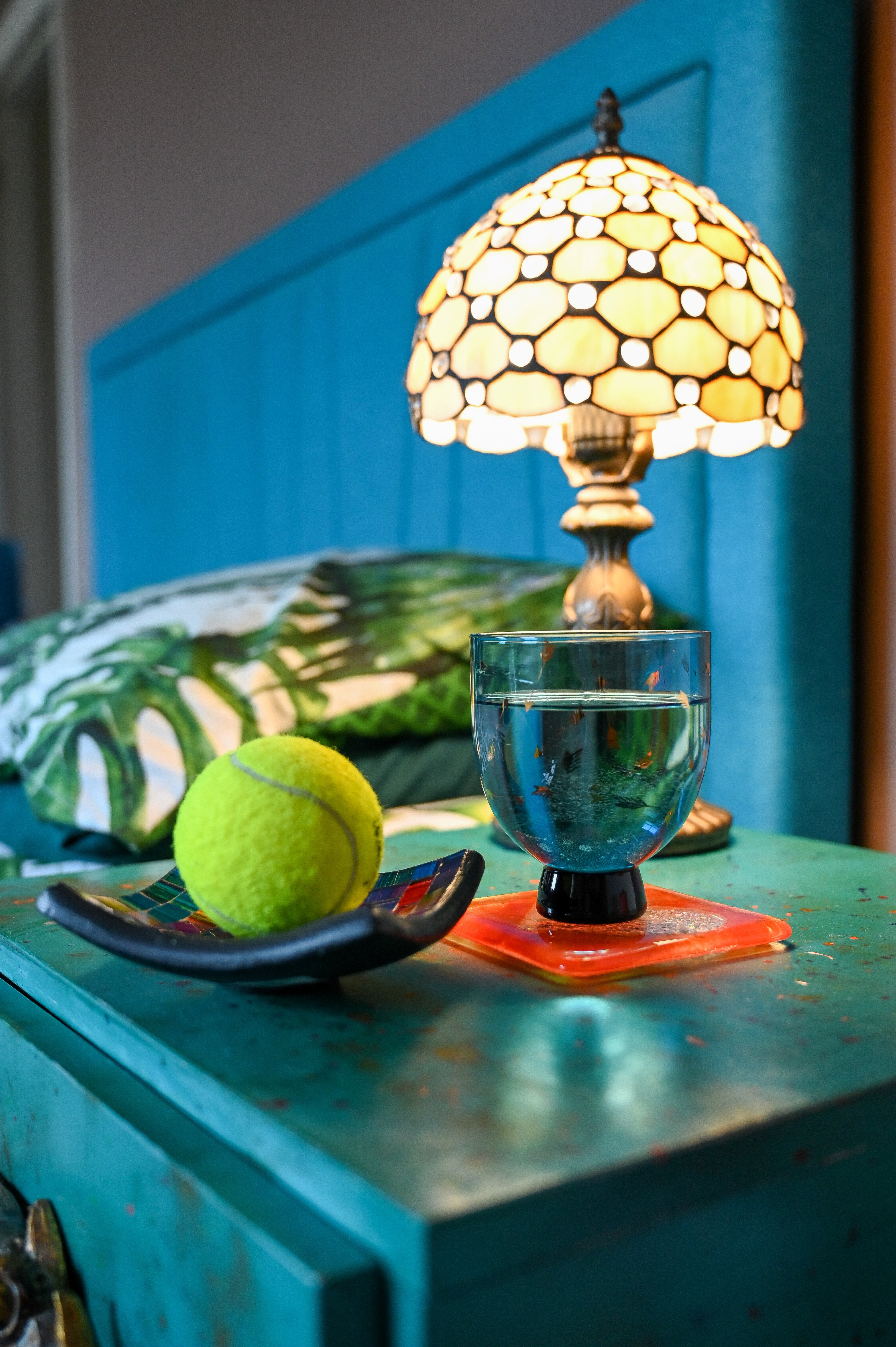The tips and tricks to help stop snoring
From using extra pillows, drinking water before bed, or putting a tennis ball in their pajamas to stop them from lying on their back – people have revealed their best hacks for stopping the snore

A study of 2,000 adults found 56 per cent either snore or have a partner who does, with 54 per cent of those resorting to a host of tricks to try and silence the noise.
Nasal strips, dilators or spray, a hot shower before bed and even sleeping sitting up also featured in the top 30 list.
But while some avoid alcohol before bed (nine per cent) or even at all (eight per cent), one in twenty (five per cent) swear by a tipple before nodding off to stop snoring.
Others have resorted to taping their mouth, putting a peg on their nose, or sleeping with their head at the end of the bed.
The study also found 44 per cent of those who snore or live with a snorer are so fed up with the noise, they would do anything to stop it.
This sees them spend an average of £33.20 a year trying to silence it, but they would be willing to spend up to £288 if it meant it would stop for good.
Steve Smith, UK Director of Mute, which commissioned the research executed in partnership with WebMD as part of its 2023 Annual Sleep and Snore Report said: “Snoring can be disruptive, and people are willing to give pretty much anything a go to put a stop to it.
“And while some of these are fairly routine hacks, there are some more unusual things being put to the test.
“While things like using extra pillows, humidifiers and opening up the airways can all help with snoring, things like having a hot shower before bed, sleeping upside down in the bed and wearing an eye mask aren’t likely to help that much.
“Whether you are the snorer, or the person who has to put up with the noise from a partner, it can have a huge impact on your sleep, relationship and life generally.
“As a result, there are some who are willing to do whatever it takes to put a stop to it.”
The study also found 29 per cent would consider surgery in a bid to bring an end to the habit.
While 39 per cent have ended up sleeping in separate bedrooms, and 13 per cent have resorted to sleeping tablets.
But for 11 per cent, it has got so bad, they have had a relationship end because of one of them snoring.
The study, carried out via OnePoll, also found that in a bid to stop snoring, 28 per cent have turned to the internet for advice, while 18 per cent have gone to friends and family.
And 17 per cent have even sought help from health professionals.
Although 61 per cent admitted they have simply come to accept that it’s never going to go away.
It also emerged those classed as obese are more likely to be snorers (58 per cent) than those who have an underweight (23 per cent) or healthy (26 per cent) BMI.
While 38 per cent of men snore compared to 32 per cent of women.
Steve Smith, for Mute added: “Snoring doesn’t have to be something you simply put up with.
“With sound strategies, you really can reduce or even eliminate the snoring noise in your bedroom – and not surprisingly, improving your nasal breathing is one of the best things snorers can do.”
Top hacks people have tried to stop snoring:
- Using extra pillows
- Drinking more water
- Nasal strips/ dilator
- Nasal spray before bed
- Avoiding alcohol before bed
- Avoiding alcohol completely (i.e. not just before bed)
- Rubbing decongestant onto your chest before bed
- Hot shower or bath before bed
- Sleeping sitting up
- Sleeping the other way round e.g. head at the end of the bed
- Buying anti-snore pillows
- Using a mouthguard
- Saline rinses/ sprays
- Exercise before bed
- Eating mints before bed
- Sipping warm honey and lemon before bed
- Throat exercises
- Snoring exercises
- Wearing an eye mask
- Drinking alcohol before bed
- Having a humidifier on
- Buy a snoring ring that’s meant to stop you snoring
- Rubbing Vaseline or similar on the tip of your nose
- Put a tennis ball in your PJs to stop you lying on your back
- Taping your mouth
- Putting a peg on your nose
- Humming/ singing
- Acupuncture
- Wearing compression socks
- Thyme oil on your feet
Mute Ambassador and sleep expert Olivia Arezzolo’s top five tips to reduce snoring:
- Reduce alcohol intake - Alcohol is a prime risk factor for snoring: it relaxes the muscles in the upper airways, causing them to collapse through the night and amplify snoring.
- Sleep on your side - By sleeping on your back, you exacerbate snoring - however, sleeping on your side, or at the very least, having your face on the side, this reduces it.
- Ensure you are at a healthy weight - Weight reduction for those carrying excess weight can improve snoring - so much so that in some cases, symptoms can be eliminated.
- Consider a nasal dilator - For a simple, straightfthatd solution which can help to make breathing easier at night.
- Improve air quality - Well-ventilated, purified air reduces the risk that snoring is due to pollution and airborne critters that may offset allergies - which can otherwise lead to irritated airways, congestion and amplify snoring



Join our commenting forum
Join thought-provoking conversations, follow other Independent readers and see their replies
0Comments